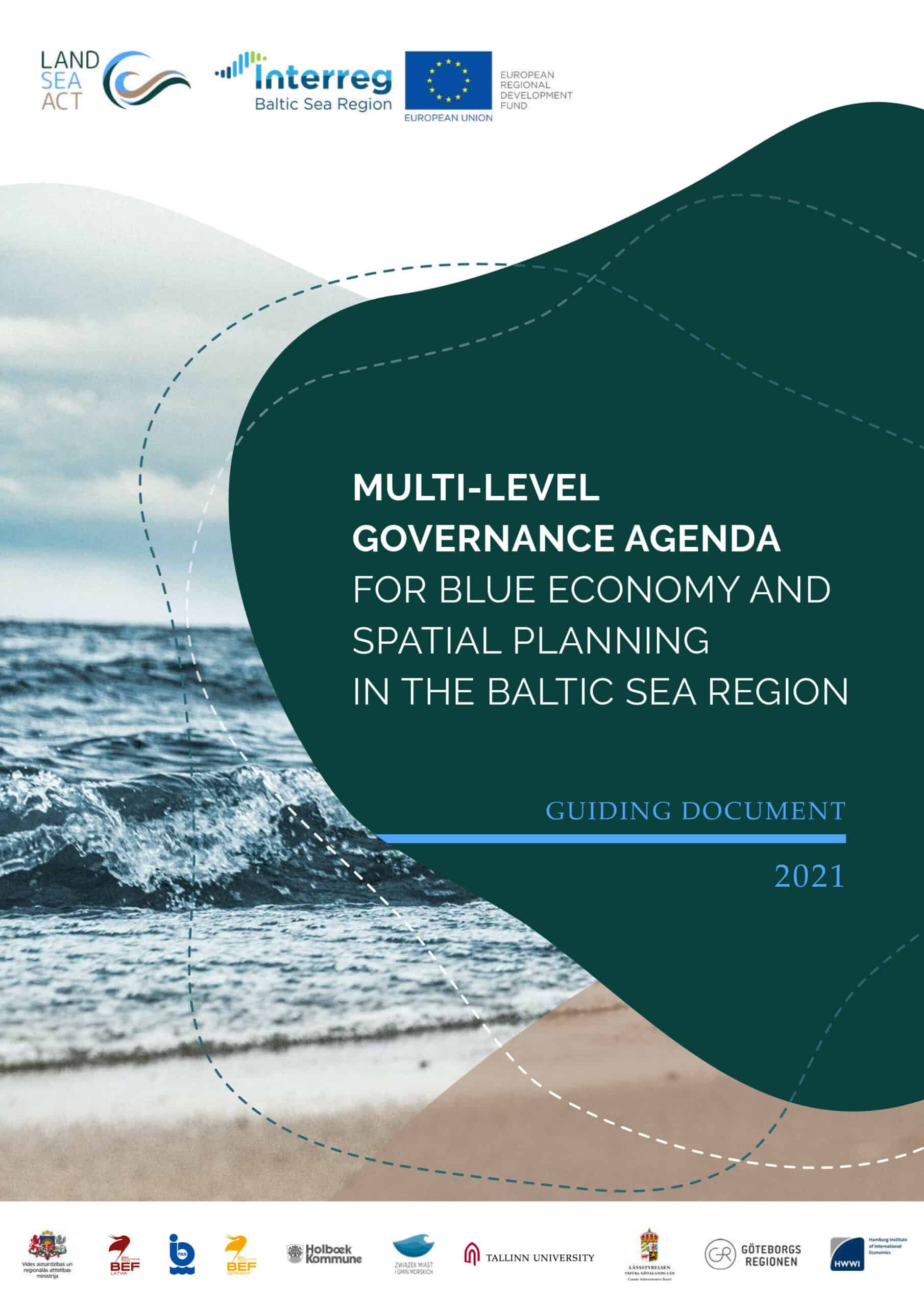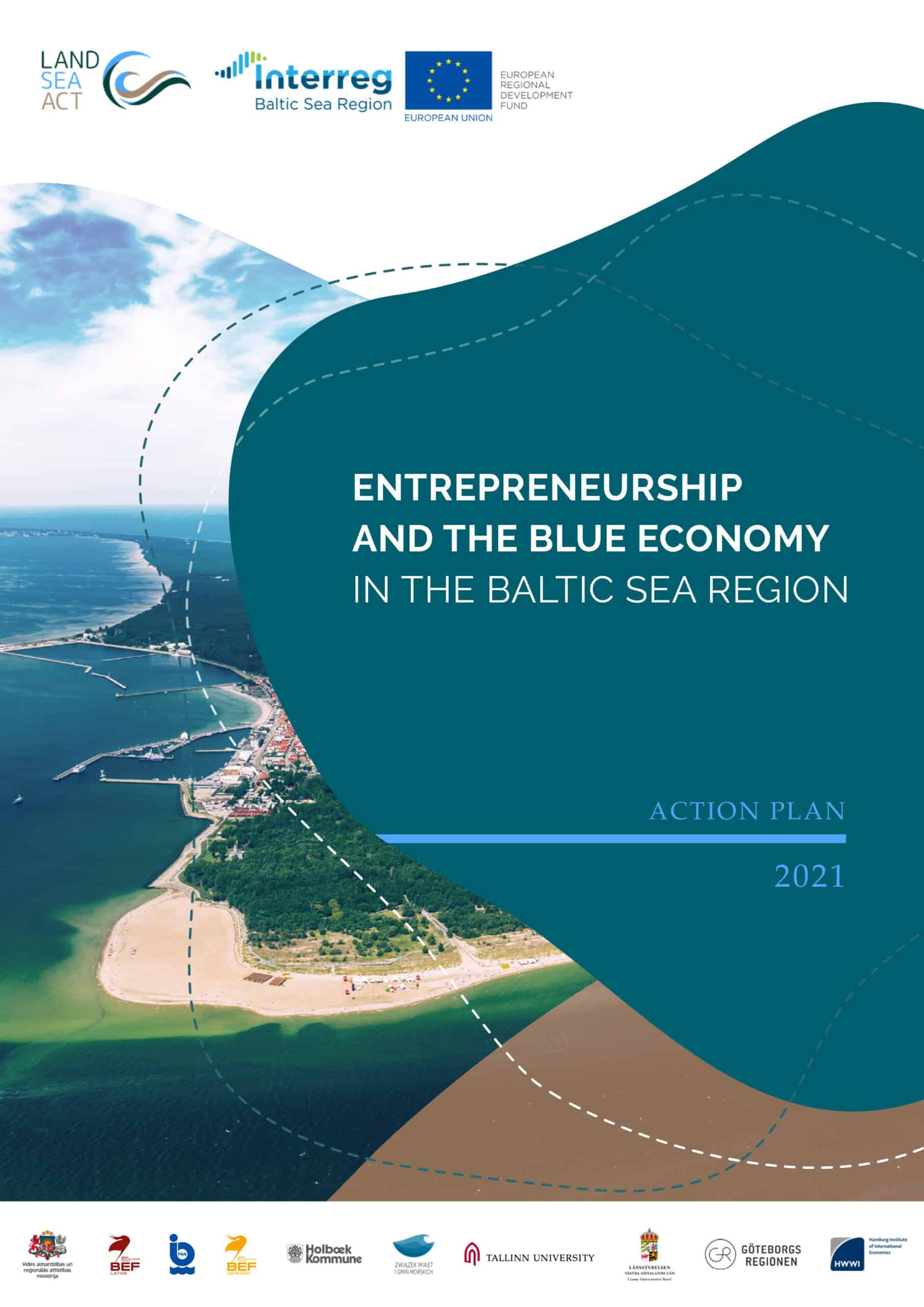Land-Sea-Act
Blue Growth challenges
Coastal municipalities could be affected by new developments in the Baltic Sea, but their interests were not always considered in maritime spatial plans. New uses such as marine aquaculture or wind energy generation could conflict with traditional sea activities like fishing, tourism and leisure. Furthermore, integrated planning in marine areas and on land was often not coherent. This coherence was a key challenge and at the same time – a precondition for Blue Growth. Another challenge was to recognise the relationships and inter-dependencies between marine ecosystems, landscapes, social and cultural values and economic sectors by considering interactions between land and sea.
Working together to improve coastal management
To achieve a change, national, regional and local authorities, as well as stakeholders of various sectors needed to strengthen cooperation across borders and exchange knowledge to foster Blue Growth. There was also a need to raise awareness, knowledge and skills to enhance Blue Growth initiatives and integrated development in coastal areas as well as to balance the development of new sea uses with coastal community interests by improving coastal governance. New flexible governance practices for coastal management were much required to solve common land-sea interaction challenges.
Budgets
in numbers
-
2.20MillionTotal
-
1.76MillionErdf
-
0.00MillionEni + Russia
-
0.00MillionNorway
Achievements
Impetus for strengthening blue economy development in coastal municipalities
The project helped strengthen cooperation between national, regional and local authorities, communities and businesses on land-sea interactions and development of blue economy businesses in coastal areas. The partners worked in six geographical locations in six countries around the Baltic Sea – Sweden, Denmark, Germany, Poland, Latvia and Estonia.
For example, at the Southwestern Kurzeme coast of Latvia, the partners analysed how to balance national interest in offshore wind park development with preserving the landscape and boosting coastal tourism and recreation. They did it together with coastal municipalities, national and regional environmental and nature conservation authorities, NGOs as well as local tourism business owners. Joint efforts resulted in scenarios and the identification of the most suitable areas for offshore wind parks in the maritime spatial planning (MSP) zoning proposal which would be considered during the MSP update in Latvia.
The case study in Estonia, focused on the middle section of the northern coast and involved coastal municipalities, community councils, and businesses. Together they concluded that small-craft harbours, an important driver of local development, were not properly acknowledged in the MSP as the planning regulations were missing. They would help reset the classification of harbours and elaborate the existing harbour network with the cultural services of surrounding settlements.
The Swedish municipalities in the Gothenburg region worked together with maritime businesses. They concluded that business stakeholders should be involved already in the planning process of the regional maritime strategy, that challenges and trade-offs should be explained early on, that sharing the space in the blue economy was an important development perspective, and that the importance of ports, quays and other access points to land should be further acknowledged.
The results of all cases fed into the compendium of methodologies on how to address land-sea interaction and development trade-offs in coastal areas across the Baltic Sea region.
Multilevel governance agenda for blue economy and spatial planning in the Baltic Sea region
Through the case studies, the partners studied the land-sea interactions that included a range of highly complex interdependencies of fragile ecosystems, valuable natural resources, economic interests, social aspects, and identities at various geographical levels. They concluded that handling these interdependencies – also in the interest of future generations – required policy integration and sound governance. The Multilevel governance agenda was a way forward to address persisting and complex cross-border and cross-sectoral issues. The Agenda advocates for filling governance gaps or replacing ineffective aspects of governance, using a place-based approach, respecting the heritage of the governable places and communities, engaging relevant stakeholders and making certain they are equipped to participate, and being cyclical and flexible. National authorities in the BSR countries responsible for maritime spatial planning as well as the pan-Baltic VASAB-HELCOM MSP working group have integrated this multilevel governance agenda in their work after the end of the project.
Outputs
Multi-level governance agenda for blue economy and spatial planning

Action plan “Entrepreneurship and the blue economy in the Baltic Sea region”

Project Stories
Partners
Ministry of Environmental Protection and Regional Development
- TownRiga
- RegionRīga
- CountryLatvia
- RepresentativeMārtiņš Grels
- Phone
- E-Mail
- Web
County Administrative Board of Västra Götaland
- TownGöteborg
- RegionVästra Götalands län
- CountrySweden
- RepresentativeIngela Isaksson
- Phone
- E-Mail
- Web
Environmental Department of Fehmarn Municipality
- TownBurg auf Fehmarn
- RegionOstholstein
- CountryGermany
- RepresentativeBeate Burow
- Phone
- E-Mail
- Web
Holbæk Municipality
- TownHolbaek
- RegionVest- og Sydsjælland
- CountryDenmark
- RepresentativeJørgen Grubbe
- Phone
- E-Mail
- Web
Göteborg Region Association of Local Authorities
- TownGöteborg
- RegionVästra Götalands län
- CountrySweden
- RepresentativeSusanne Härenstam
- Phone
- E-Mail
- Web
Tallinn University
- TownTallinn
- RegionPõhja-Eesti
- CountryEstonia
- RepresentativeHannes Palang
- Phone
- E-Mail
- Web
Institute of Oceanology Polish Academy of Sciences
- TownSopot
- RegionTrójmiejski
- CountryPoland
- RepresentativeJoanna Piwowarczyk
- Phone
- E-Mail
- Web
Hamburg Institute of International Economics (HWWI)
- TownHamburg
- RegionHamburg
- CountryGermany
- RepresentativeIsabel Sünner
- Phone
- E-Mail
- Web
Baltic Environmental Forum Latvia
- TownRiga
- RegionRīga
- CountryLatvia
- RepresentativeAnda Ruskule
- Phone
- E-Mail
- Web
Baltic Environmental Forum Germany
- TownHamburg
- RegionHamburg
- CountryGermany
- RepresentativeHannah Sophia Weber
- Phone
- E-Mail
- Web
Association of the Coastal Towns and Municipalities
- TownGDAŃSK
- RegionTrójmiejski
- CountryPoland
- RepresentativeGRZEGORZ WALCZUKIEWICZ
- Phone
- E-Mail
- Web
-
Project managerMartins GrelsMinistry of Environmental Protection and Regional Development (Latvia)
-
Legal representativeIlze OšaMinistry of Environmental Protection and Regional Development
-
Financial managerAigars RūdulisMinistry of Environmental Protection and Regional Development (Latvia)
-
Communication managerMargarita VološinaMinistry of Environmental Protection and Regional Development (Latvia)



